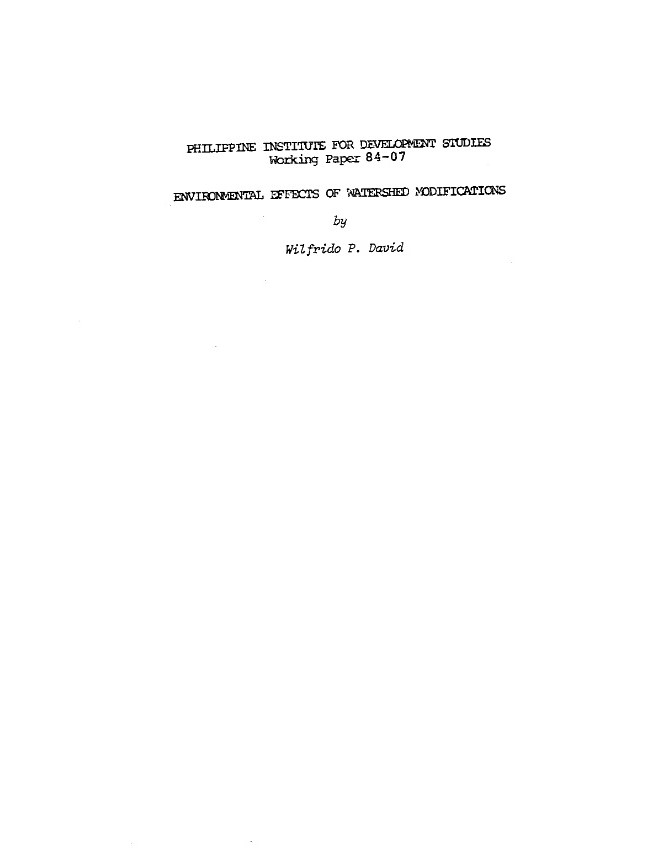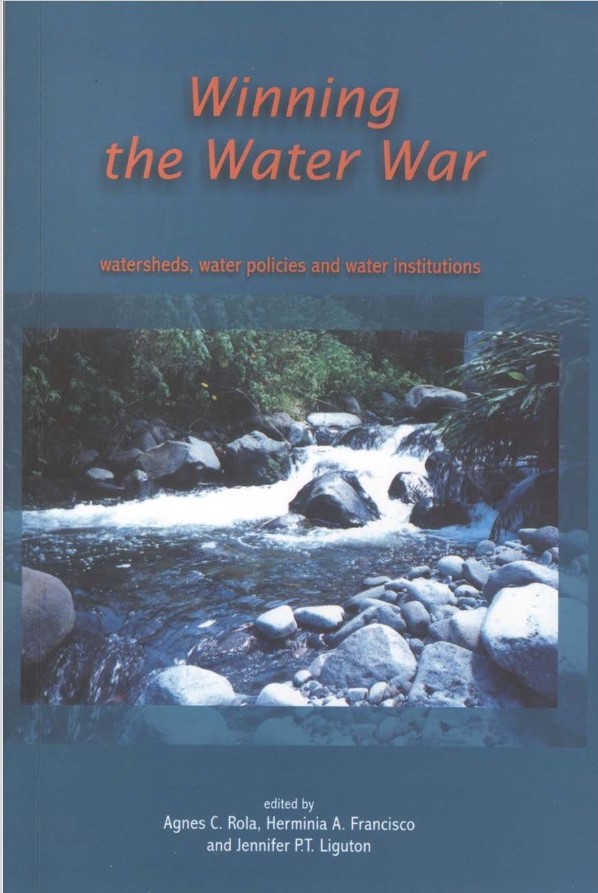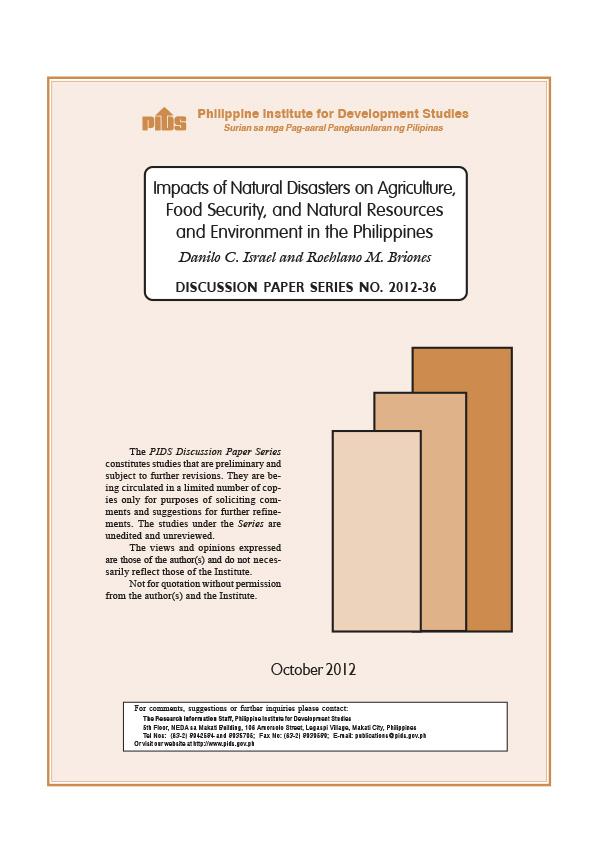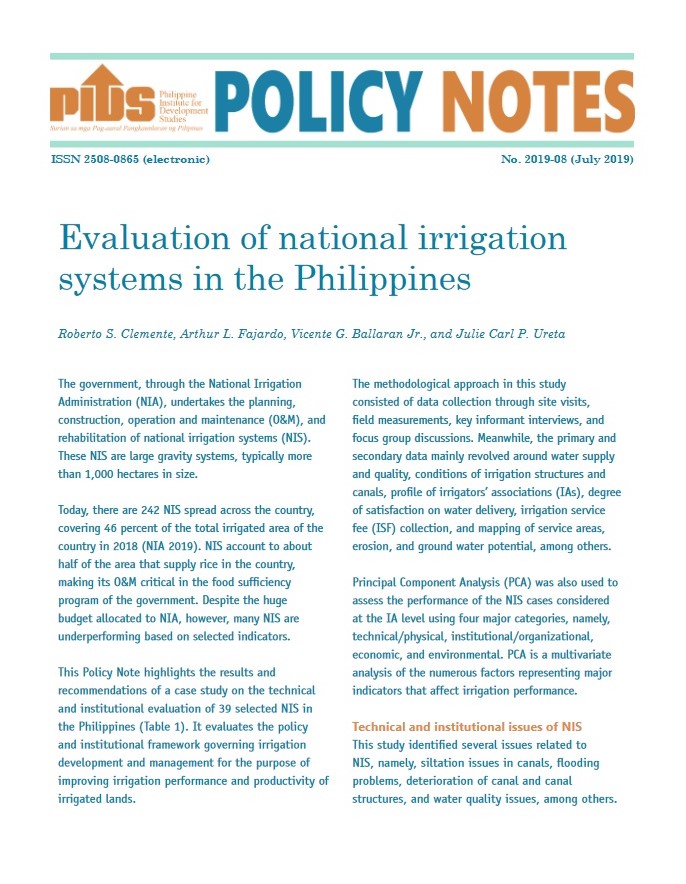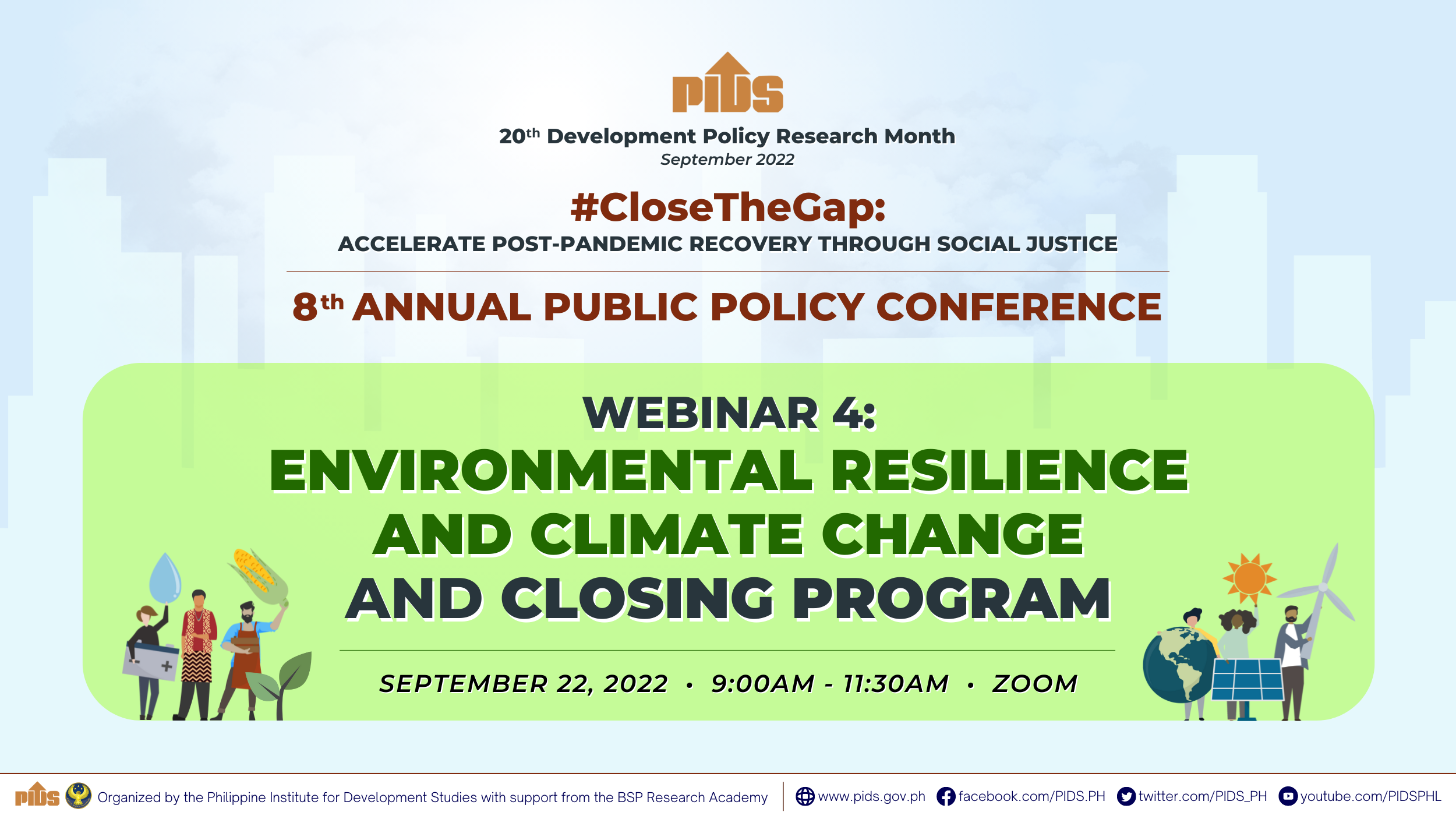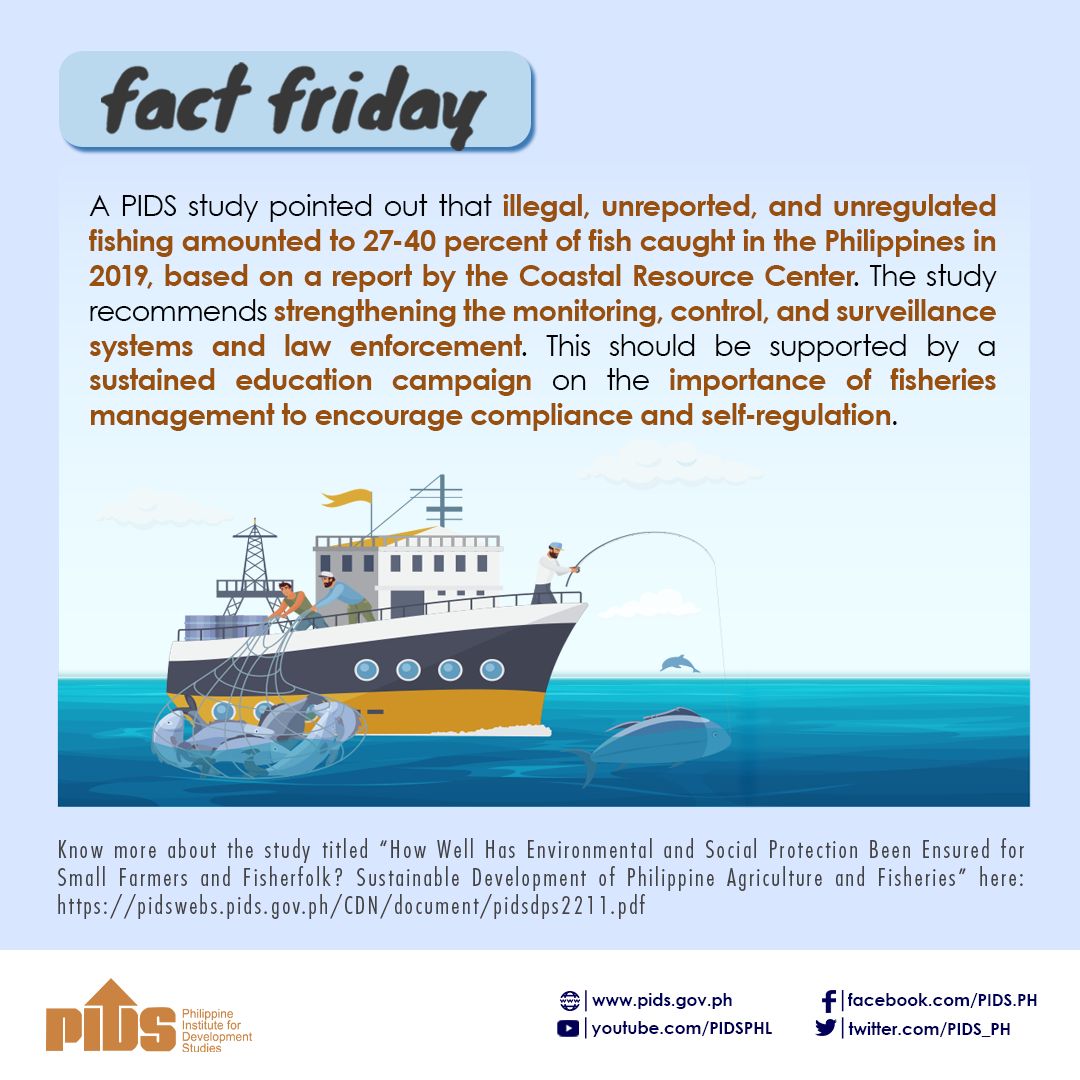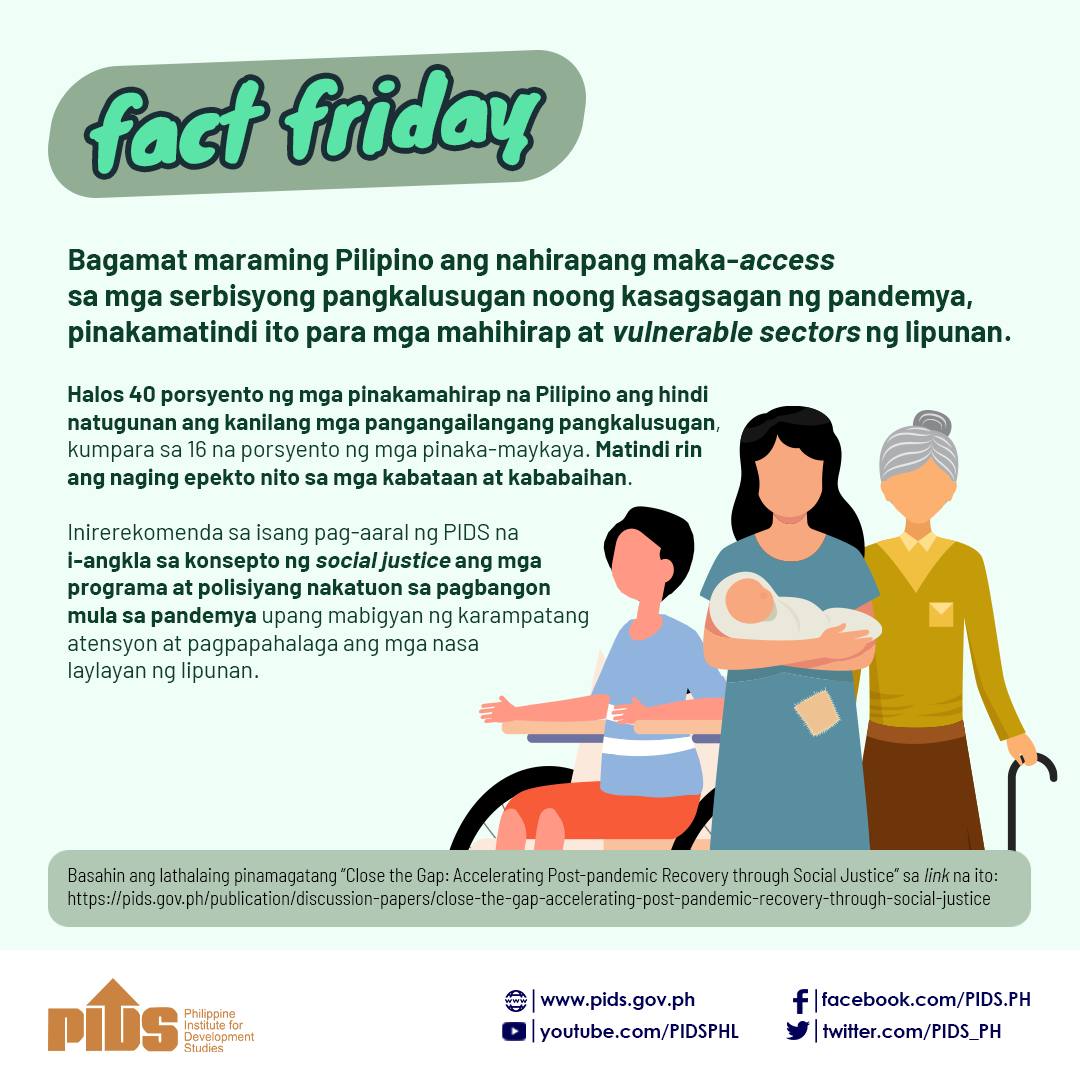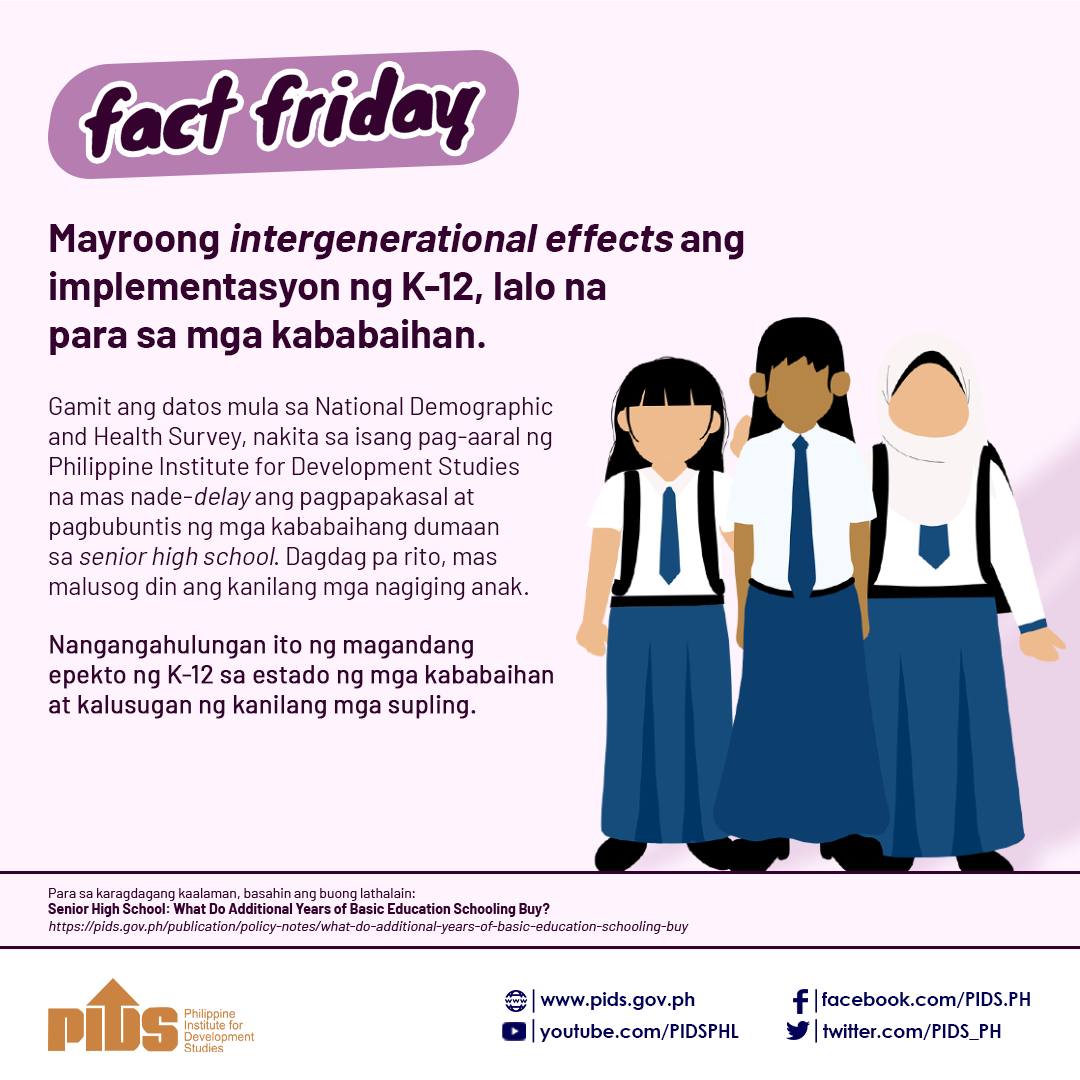Watershed management is more effective when there is a relief from the population to exploit the land. Undoubtedly, such policies must be premised on a full appreciation of the interdependence and the extent of interaction of the various components of watershed ecosystems This paper defines the basic concepts and assumptions in the discussion of watershed management with the objective of providing sound physical bases for land use policies for rural and forest watershed. Related issues such as soil erosion, water quality and other hydrometereological concerns are hoped to be given future research considerations.
Citations
This publication has been cited 4 times
- Saastamoinen, Olli. 1994. Off-site costs of soil erosion and watershed degradation in the Philippines: sectoral impacts and tentative results. Discussion Papers DP 1994-18. Philippine Institute for Development Studies.
- Shively, Gerald. 2001. Poverty, consumption risk, and soil conservation. Journal of Development Economics, 65, No. 2, 267-290. Elsevier.
- Shively, Gerald. 1999. Prices and tree planting on hillside farms in Palawan. World Development, 27, No. 6, 937-949. Elsevier.
- Shively, Gerald and Charles Zelek. 2002. Linking economic policy and environmental outcomes at a watershed scale. Philippine Journal of Development PJD 2002 Vol. XXIX No. 1-. Philippine Institute for Development Studies.

